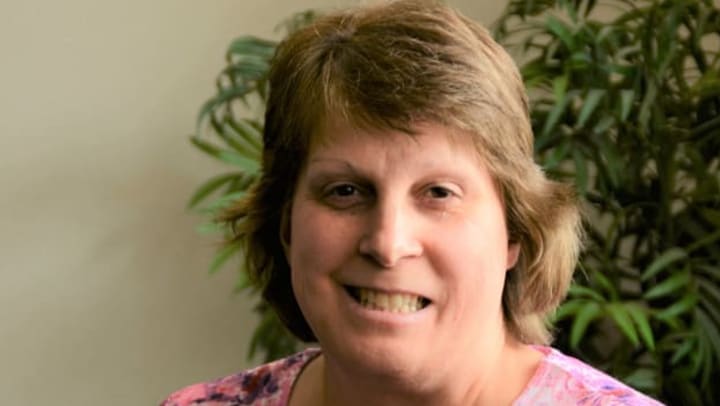Connie’s life purpose is to help people, even though she’s not living out that purpose as a nurse, like she planned. In the early ‘80s when she and her twin sister were in nursing school in St. Cloud, there was scant information about Obsessive Compulsive Disorder (OCD), a condition they were later diagnosed to have.
“When we read about it in our abnormal psychology nursing books, there wasn't much written about OCD,” Connie recalls. “In school we were told that OCD was caused by ‘an overanxious family environment.’ We’ve come full circle, because OCD is now understood as a biological chemical imbalance in the brain.”
At the relatively young age of 55, after losing her marriage, leaving the nursing profession and the frustrations of cycling through job after job, Connie’s mother suggested moving into an assisted living community. Vista Prairie at Monarch Meadows in North Mankato has become a significant part of her OCD therapy, funded through government disability payments. She had tried almost all the different medications for OCD. She did months of in-patient behavior therapy and underwent deep brain stimulation surgery, which uses a brain implant. Nothing worked long-term.
Since her move in March, Connie has high hopes that Monarch Meadows is the answer she has sought for more than 30 years. She describes the resident assistants as her “coaches and cheerleaders,” all at the same time, “Since I moved here, there's quite a difference. When my mother asks how I’m doing, I say ‘I’m doing good mom!’”
Connie’s OCD will never go away, but she can cope much better now, with the friendships she has and 24-hour support. “I still worry about making mistakes,” she says. “It’s like having a battle in your brain all of the time.”
Connie stays in close contact with her sister, who lives in New Ulm. The two turned their disability into service, offering workshops for health care professionals titled, “Double the Trouble, the Troubling Effects of OCD.” “We wanted to speak at schools but at the time the schools were saying, ‘how can you talk about a mental illness when you’re mentally ill yourself.’ The reason we wanted to approach schools is because OCD can hit at a young age. If you can catch it early, while their brains are still developing, they can get help quicker,” Connie explains. Connie’s most recent workshop about the complexities of OCD was for the Monarch Meadows staff. “We like to get the word out and educate people about OCD, so that there isn’t so much stigma.”

